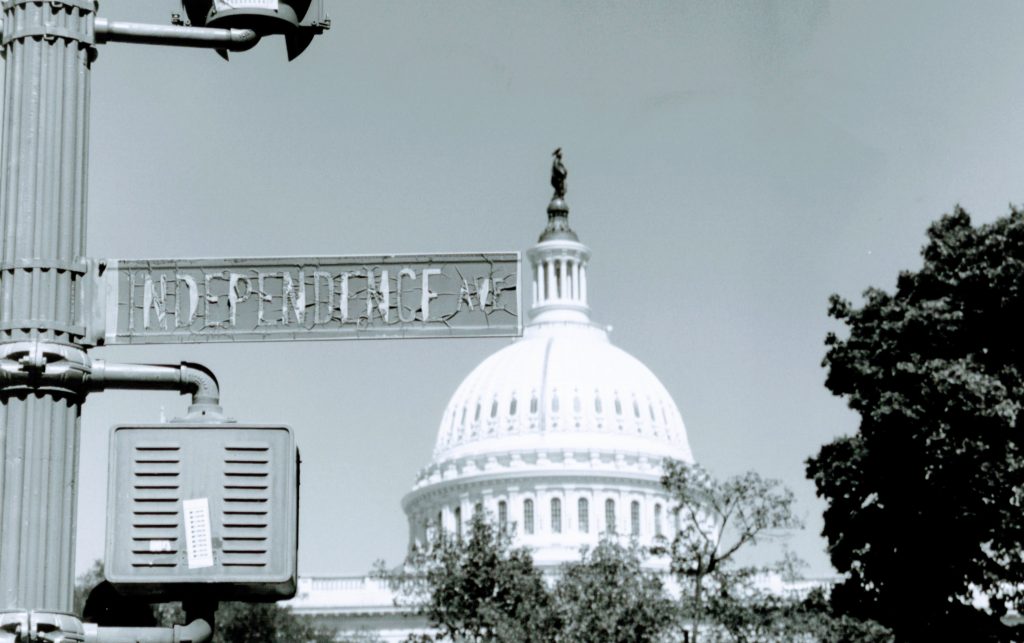PACS Blog / January 11, 2021
Words matter
What happened on Wednesday in Washington and state capitols around the country was not protest — it was insurrection. The reason we have to distinguish between the two is that the people’s right to protest must be protected, and the philanthropic sector must not be confused.

This week, organized groups took deliberate and premeditated action to invalidate the legal process for selecting a U.S. President. They were incited and supported by the executive branch to overthrow the legislative branch’s rightful role; the executive branch also appears to have delayed protection for members of Congress. A number of people were killed; and it’s only by the quick thinking of a few that the number is neither higher nor inclusive of people in the line of Constitutional succession. The action follows months of failed efforts by the same executive to intervene via the judicial branch and state officials. This is insurrection, and it is only the beginning. Accountability for these acts should draw from existing law and Constitutional guidance on capacity to serve, sedition, treason, and incitement to violence.
Throughout this election, the President and his supporters have cloaked their intentions in the language of democracy, anointing themselves the victims of a process gone wrong; claiming the harms of disenfranchisement for themselves. What they actually sought was to discount millions of voters, primarily Black voters and people of color from Atlanta, Milwaukee, Detroit, Phoenix, and Philadelphia; voters who showed up in numbers great enough to overcome the racism of voter suppression, gerrymandering, and the electoral college.
This is what ties law enforcement’s (in)action to prevent the breaching of the Capitol Building to the broader effort by a president to run roughshod over the electoral process. These most recent actions are linked by historical and contemporary white supremacist systems that effectuate the use of laws, law enforcement, and norms to advance and protect white power. They also were not unprecedented; the Wilmington massacre of 1898 was a “successful” overthrow of duly-elected officials in North Carolina by white supremacists. What happened on Wednesday was a predictable (and predicted) convulsion as part of an effort to exert autocratic control over the federal government. Words like protest or protestors do not apply; white supremacy, fascism, and insurrection do.
The right words matter because pinpointing and carefully defining problems is critical in crafting appropriate and effective solutions. In this instance, the right words matter deeply for civil society and philanthropy. Protest and assembly are liberties guaranteed to all the people of the U.S., though, as with so much in this country, access to them is unequally distributed by race, class, sex, and immigration status. These ideas and rights are critical tools for the pursuit of equity, participation, and justice; not hollow rhetoric for the powerful. These liberties are core to the logic that makes space in our society for individual and collective action by those not represented through majoritarian elections. Without these rights there is no civil society, there is no nonprofit sector, there is no institutional philanthropy.
Wednesday was an awful day. It was not the end of our system of governance nor the end of the ongoing fight to protect and improve that system. Echoing Congressman John Lewis, democracy isn’t a noun, it’s a verb. Our work to build a democracy that lives up to its promise must continue. To continue it, civil society and philanthropy must protect assembly, association, and protest, not as mere words but as experienced rights.
Stanford PACS’ contributions to this work include:
- The Digital Assembly Research Network, a global effort focused on actionable research to understand how digital tools influence assembly
- The Polarization and Social Change Lab’s work on understanding truth, lies, and language on social media
- The Civic Life of Cities Lab’s work on the shape and power of local, collective action
- The Program on Democracy and the Internet’s work to ensure free, fair, and functional elections
- And through our crosscutting research – from computational social science to political theory – on democracy, philanthropy, and civil society in the 21st Century.
